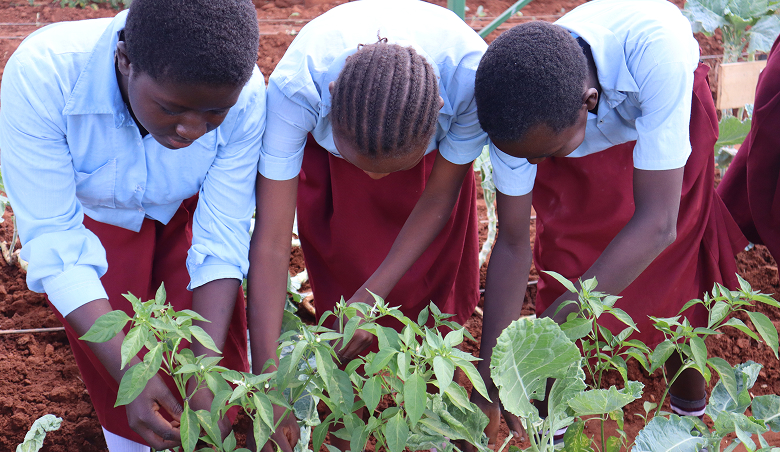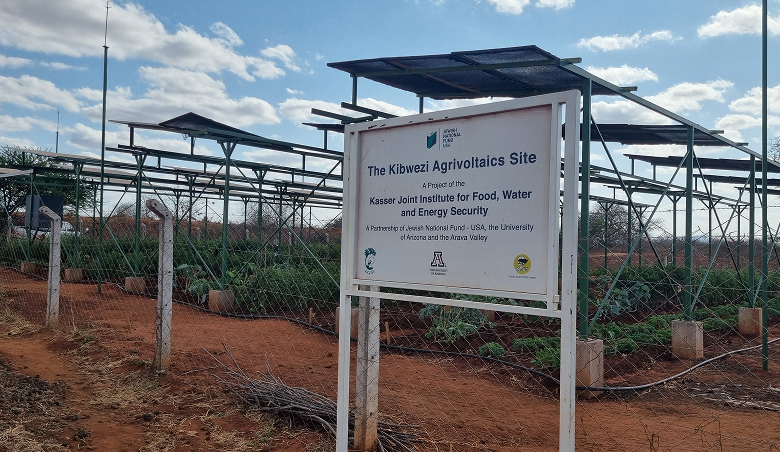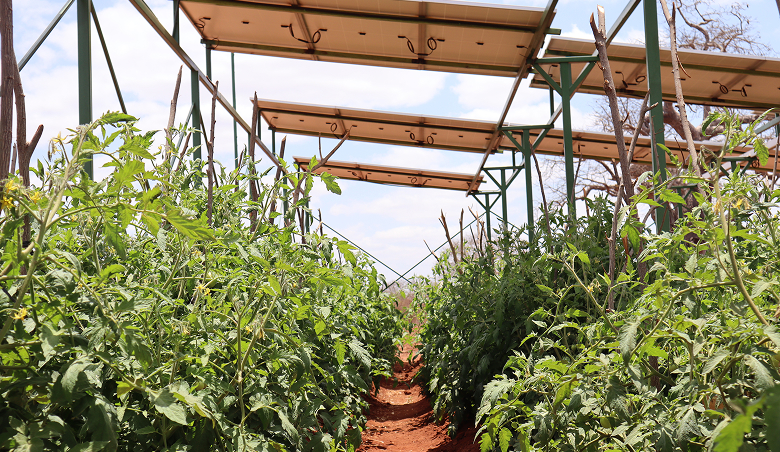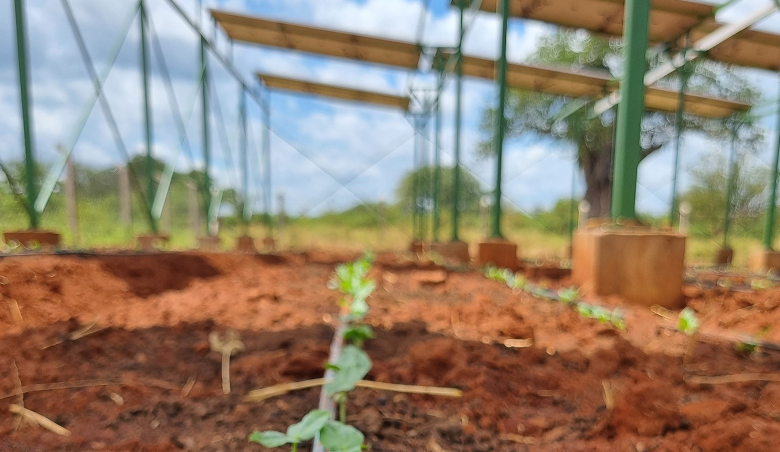Makueni Agrivoltaics
In December 2023, we took a significant step forward by initiating the implementation of the first Agrivoltaics site in a community of farmers located in Makueni County, Kenya. This groundbreaking project is the inaugural effort in what we envision will be a series of transformative initiatives designed to improve the lives of farming communities across the region and beyond. The project is more than just a research endeavour—it represents a holistic approach to community development that integrates sustainable agriculture, renewable energy, and local empowerment.
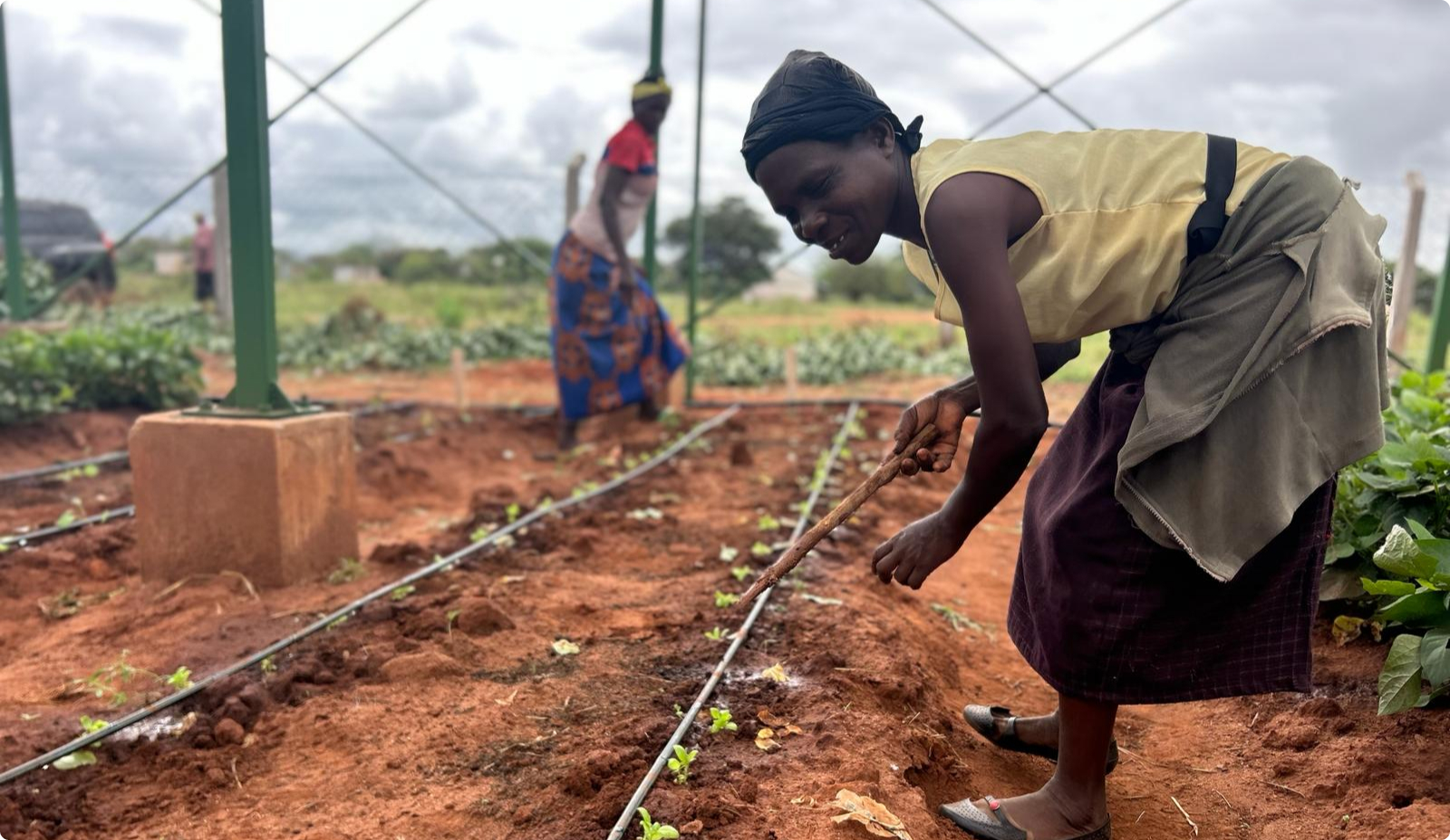
The success of the Makueni Agrivoltaics project hinges on the active engagement and participation of the local farming community. From the outset, we have prioritized involving the farmers in every stage of the project, ensuring that they are not only informed but deeply invested in its outcomes. By fostering a sense of ownership and commitment, we aim to empower these farmers to take the lead in operating and managing the site once our research
phase is complete. This approach is vital for ensuring the long-term sustainability of the project, as it transforms the site into a community-driven resource that continues to benefit the local population well into the future.
The Makueni site is not merely a research facility; it is a comprehensive solution that addresses multiple challenges faced by the community. The energy generated by the solar panels is harnessed to power water pumps, providing much-needed irrigation to fields that were once parched by drought, enabling farmers to cultivate their land year-round and significantly increase their crop yields. Beneath the solar panels, a variety of crops have been planted, carefully selected to demonstrate the nutritional benefits and economic potential of this integrated system. The crops not only thrive in the shaded environment but also contribute to cooling the solar panels, thereby enhancing their efficiency and productivity.
Moreover, the positive impact of the Makueni Agrivoltaics site extends beyond agriculture. The project has brought running water and electricity to the local school, greatly improving the quality of life for students and teachers. This access to basic utilities has already begun to foster a better learning environment, contributing to the overall development of the community.
The research conducted at the Makueni site is supervised by the research teams from the Arava and the University of Arizona. These teams are conducting in-depth studies on a range of critical topics, including crop performance under varying conditions, water and soil management practices, and the development of economic models that can be adapted by the local community. The insights gained from this research will not only refine the current project but also inform future initiatives, ensuring that they are tailored to the specific needs and challenges of the communities they serve.
Already, the Makueni Agrivoltaics site is making a tangible difference. By exposing the community to modern agricultural practices and providing them with the necessary knowledge and training, we are supporting the farmers in their journey toward self-sufficiency. This exposure to new technologies and techniques is empowering them to take control of their livelihoods and improve their standard of living.
Looking ahead, we have ambitious plans to scale up our efforts. In the coming years, we aim to extend the reach of our Agrivoltaics projects to more communities across Kenya and eventually to other parts of the world. Our ultimate goal is to make a lasting impact on global food security, creating a world where every community has the resources to thrive and prosper.
